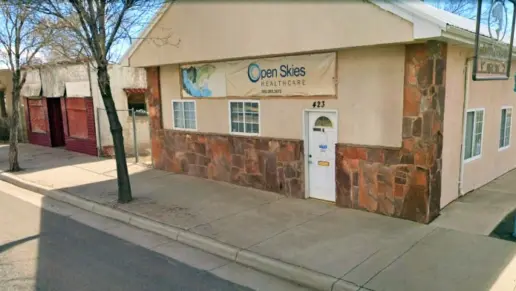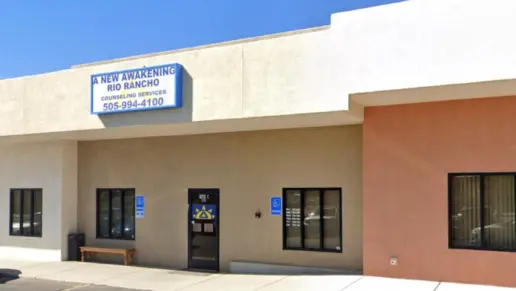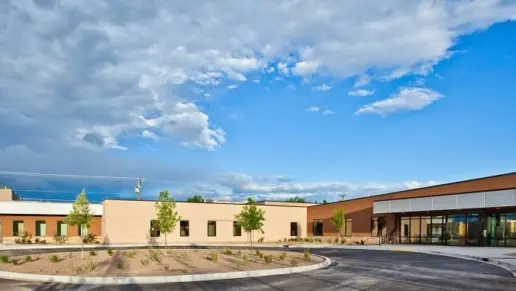Their process for renewing prescriptions is outdated and this has resulted in my wife being unable to receive her prescribed medications on time. They also happen to bill services to the wrong insurance, this facility sucks
About Presbyterian Inpatient Behavioral Health Albuquerque
Kaseman Presbyterian Hospital Behavioral Health Services offers adults, children, and adolescents a full range of substance abuse and behavioral recovery services in Albuquerque, New Mexico. Their comprehensive approach includes a team of behavioral health specialists, nurse practitioners, psychiatrists, psychologists, therapists, and social workers. The core of their program is medication management, education, and therapy programs. They provide inpatient residential care and outpatient treatment with age specific groups.
Inpatient treatment takes place at Kaseman Presbyterian Hospital. Clients receive a private room and ongoing care in a calm atmosphere. Inpatient treatment is often recommended for those with severe or complicated substance abuse or behavioral struggles because it allows for closer monitoring during the program.
During treatment, clients receive several forms of therapy, including individual therapy, group therapy, family therapy, and couple’s therapy. Each one carries the goal of increasing self understanding and strengthening the interpersonal relationships that form vital support systems during recovery.
Outpatient care sees clients make regular visits to the hospital without having to reside there during treatment. Outpatient is preferred for those in stable living situations and those who want to continue pursuing work or education while receiving treatment. Outpatient care delivers the same treatment methods as the inpatient program but only occurs a few hours each week.
Therapy and counseling are at the core of substance abuse disorder treatment. Approaches can vary depending on a client’s circumstances, but the goal is to help you balance your work, family, education, and relationship responsibilities during and after treatment.
A primary care physician (PCP) will monitor you during treatment and help address any medical issues you experience while you are in the program. PCPs are vital to maintaining health and safety and provide a wide range of services to ensure you are getting a full spectrum of care.
Kaseman Presbyterian Hospital is part of the Presbyterian Hospital network. Those in the program may get referrals to other specialists and services in the network if appropriate or necessary.
Latest Reviews
Rehab Score
Gallery

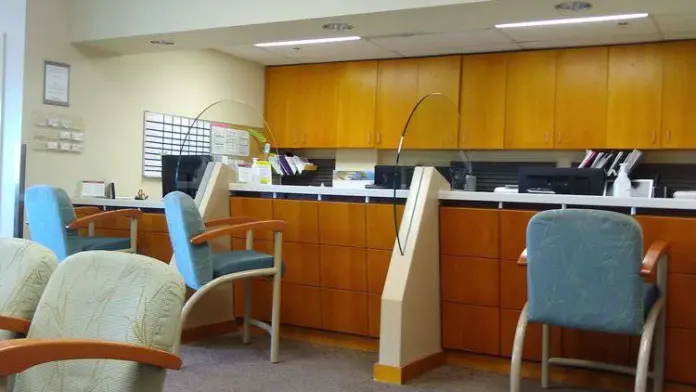
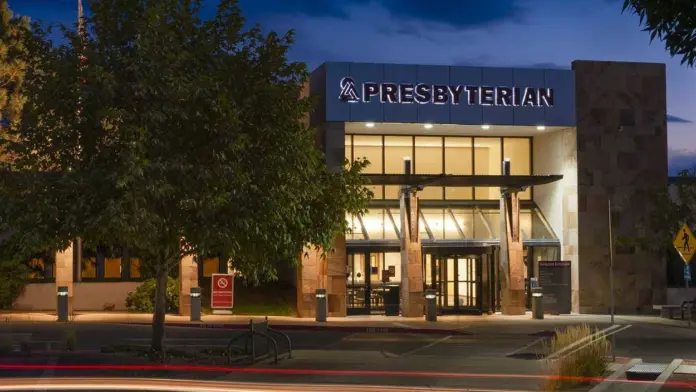
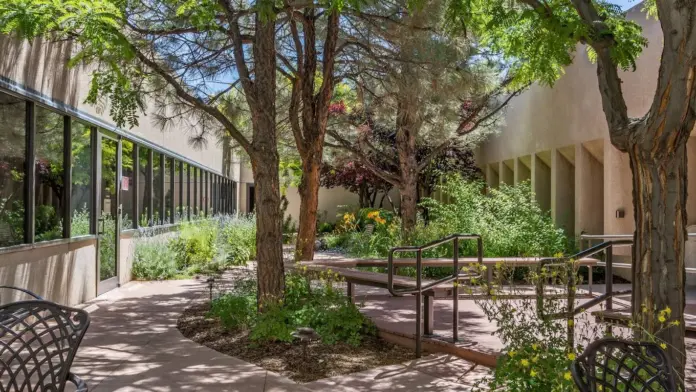
Location
Accepted Insurance

Other Forms of Payment
Private insurance refers to any kind of healthcare coverage that isn't from the state or federal government. This includes individual and family plans offered by an employer or purchased from the Insurance Marketplace. Every plan will have different requirements and out of pocket costs so be sure to get the full details before you start treatment.
Self-pay involves paying for treatment out of your own pocket. You can use savings or credit, get a personal loan, or receive help from family and friends to fund your treatment. If you don't have insurance or your insurance plan doesn't cover a specific program, self-pay can help ensure you still get the care you need.
Medicare is a federal program that provides health insurance for those 65 and older. It also serves people under 65 with chronic and disabling health challenges. To use Medicare for addiction treatment you need to find a program that accepts Medicare and is in network with your plan. Out of pocket costs and preauthorization requirements vary, so always check with your provider.
Medicaid is a state based program that helps lower-income individuals and families pay for healthcare. Medicaid covers addiction treatment so those enrolled can use their coverage to pay for rehab. When a program accepts Medicaid the client often pays very little or nothing out of their own pocket.
Military members, veterans, and eligible dependents have access to specific insurance programs that help them get the care they need. TRICARE and VA insurance can help you access low cost or no cost addiction and mental health treatment. Programs that accept military insurance often have targeted treatment focused on the unique challenges military members, veterans, and their families face.
Addiction Treatments
Levels of Care
Treatments
The goal of treatment for alcoholism is abstinence. Those with poor social support, poor motivation, or psychiatric disorders tend to relapse within a few years of treatment. For these people, success is measured by longer periods of abstinence, reduced use of alcohol, better health, and improved social functioning. Recovery and Maintenance are usually based on 12 step programs and AA meetings.
Each drug rehab in New Mexico offers unique amenities and treatment methods. Common aspects of treatment include group and individual counseling, recreational therapy, medication management, and healthy living. Aftercare is often provided to prevent relapse.
A combined mental health and substance abuse rehab has the staff and resources available to handle individuals with both mental health and substance abuse issues. It can be challenging to determine where a specific symptom stems from (a mental health issue or an issue related to substance abuse), so mental health and substance abuse professionals are helpful in detangling symptoms and keeping treatment on track.
Opioid rehabs specialize in supporting those recovering from opioid addiction. They treat those suffering from addiction to illegal opioids like heroin, as well as prescription drugs like oxycodone. These centers typically combine both physical as well as mental and emotional support to help stop addiction. Physical support often includes medical detox and subsequent medical support (including medication), and mental support includes in-depth therapy to address the underlying causes of addiction.
Programs



Clinical Services
Group therapy is any therapeutic work that happens in a group (not one-on-one). There are a number of different group therapy modalities, including support groups, experiential therapy, psycho-education, and more. Group therapy involves treatment as well as processing interaction between group members.
In individual therapy, a patient meets one-on-one with a trained psychologist or counselor. Therapy is a pivotal part of effective substance abuse treatment, as it often covers root causes of addiction, including challenges faced by the patient in their social, family, and work/school life.
Whether a marriage or other committed relationship, an intimate partnership is one of the most important aspects of a person's life. Drug and alcohol addiction affects both members of a couple in deep and meaningful ways, as does rehab and recovery. Couples therapy and other couples-focused treatment programs are significant parts of exploring triggers of addiction, as well as learning how to build healthy patterns to support ongoing sobriety.
Research clearly demonstrates that recovery is far more successful and sustainable when loved ones like family members participate in rehab and substance abuse treatment. Genetic factors may be at play when it comes to drug and alcohol addiction, as well as mental health issues. Family dynamics often play a critical role in addiction triggers, and if properly educated, family members can be a strong source of support when it comes to rehabilitation.
Substance use disorders disrupt thinking and behavior patterns, which interferes with critical life skills. Drug rehab programs in New Mexico include life skills training to allow you to rebuild those skills. You'll relearn how to think, behave, and interact with others in healthy ways so you can successfully navigate daily life.
Staff & Accreditations
Staff

Chair

Vice Chair

Chief Clinical Officer

Chair, Chief Executive Officer (CEO) for Presbyterian Healthcare Services

Medical Director, Adult Medical Specialties and Neuroscience
Accreditations

The Joint Commission, formerly known as JCAHO, is a nonprofit organization that accredits rehab organizations and programs. Founded in 1951, the Joint Commision's mission is to improve the quality of patient care and demonstrating the quality of patient care.
Joint Commission Accreditation: Yes
Accreditation Number: 2775
Contact Information
8300 Constitution Ave NE
East Entrance
Albuquerque, NM 87110






